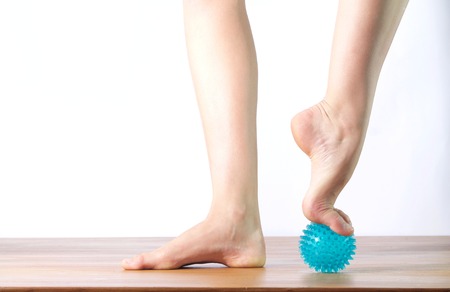
Having improperly treated high arches can contribute to many feet and ankle injuries including ankle sprains, tendonitis, and plantar fasciitis. People who have high arches may also experience instability and falls which can be particularly problematic in elderly patients.
An easy test you can perform to see if you have very high arches is to step on a flat surface with wet feet and notice the imprint. If you have a large area that doesn’t show an imprint corresponding to the middle of the foot, then you probably have a high arch problem and should see your foot doctor.
2 easy conservative treatments for high arches include the following:
- Orthotic shoe inserts and arch supports—Properly fitted arch supports and other orthotic inserts can be used to redirect pressure from the front of the foot and protect the plantar fascia from excess stress. Properly fitted shoes and ankle braces may also help.
- Physical therapy exercises—Strengthening your ankles and feet with a variety of exercises can help increase stability and prevent sprains. Stretching the calf muscle and Achilles tendon will also help your arches. Rolling a tennis or golf ball under the foot will increase arch flexibility.
For arch problems that don’t respond to conservative treatments, surgery may be needed.
If you need help treating high arches, see your podiatrist for the proper diagnosis and treatment. At Your Next Step, our team of board-certified podiatrists has access to advanced technologies, along with years of experience, to help diagnose and treat a variety of foot and ankle problems, including sports injuries, joint pain, toe deformities, nail fungus, chronic tendon pain, and skin problems. Dr. Eric Ricefield, Dr. Mark Yagodich and Dr. Aliza V. Eisen provide high-quality foot and ankle care to patients in the greater Philadelphia area at our offices conveniently located in Ardmore, Paoli, and Downingtown. Please contact us for more information or to schedule an appointment.
